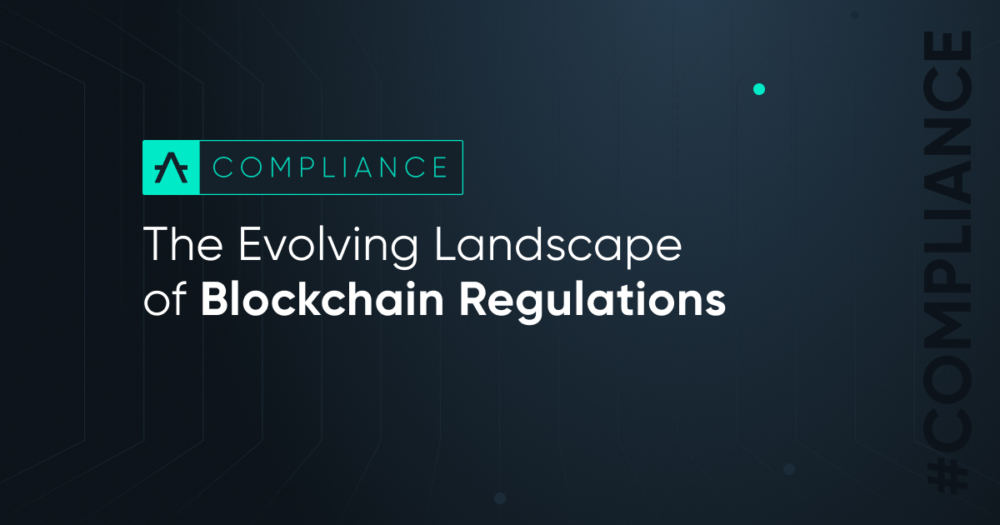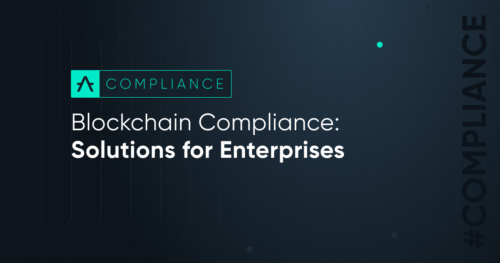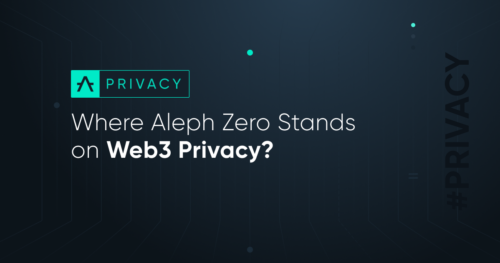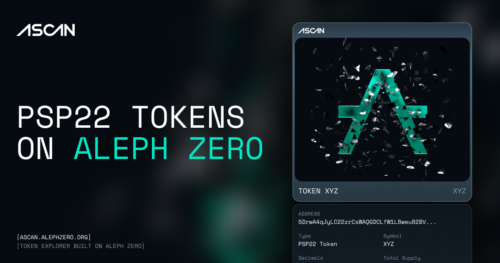The Evolving Landscape of Blockchain Regulations
Mar 8, 2024

Privacy blockchains and privacy coins will continue to be the focus of users who are concerned over the excesses of web2 when it comes to user data. They’re also the interest of companies who share similar concerns.
However, due to the uncertain regulatory landscape of blockchain compliance and privacy compliance, some of these sectors have shied from full adoption. This is something that could change over time with increased clarity around the roles of individuals, companies, and the government.
To understand where this might go we should take a look at where blockchain compliance and privacy compliance in the field has been historically, from the inception of Bitcoin until recently.
The History of Blockchain Compliance
Blockchain compliance has evolved significantly over the years, with a growing emphasis on privacy concerns. This evolution has been influenced by various factors, including technological advancements, regulatory developments, and the need to balance privacy with regulatory requirements.
Here’s how blockchain compliance has evolved, particularly in regard to privacy:
Early Days (2008-2012)
In the early days of blockchain technology, compliance and regulation were relatively undeveloped, and privacy considerations were often secondary. Bitcoin and other early cryptocurrencies were primarily used for peer-to-peer transactions. Regulatory bodies were only beginning to assess their implications.
Rise of Altcoins and ICOs (2013-2017)
The proliferation of alternative cryptocurrencies (altcoins) and the emergence of Initial Coin Offerings (ICOs) raised new compliance challenges. Regulatory agencies worldwide started taking a closer look at these developments, particularly focusing on investor protection.
SEC Actions and ICO Scrutiny (2017-2018)
The U.S. Securities and Exchange Commission (SEC) began taking action against ICOs it considered to be unregistered securities offerings. This period saw the beginning of regulatory scrutiny regarding the classification of tokens and the application of securities laws, often putting privacy-focused projects under the regulatory spotlight.
GDPR Implementation (2018)
The General Data Protection Regulation (GDPR) came into effect in the European Union in 2018, emphasizing data privacy and protection. Blockchain projects operating in the EU have to adapt to GDPR requirements, which led to a greater awareness of privacy compliance.
Focus on Privacy Coins (2018-2021)
Privacy coins, such as Monero and Zcash, gained popularity, raising concerns among regulators about their potential use in illicit activities. Government agencies like the IRS even issued bounties for “breaking” coins like Monero. Some exchanges delisted privacy coins to comply with anti-money laundering (AML) and know your customer (KYC) regulations.
Evolving Regulations (2021-Present)
Various countries have started to introduce more comprehensive regulations for cryptocurrencies and blockchain technology. Some jurisdictions are working to strike a balance between privacy and the need to combat illegal activities.
International coordination among regulatory bodies has become increasingly important as blockchain technologies transcend borders. Initiatives like the Financial Action Task Force (FATF) provide guidance on how countries should handle AML and counter-terrorism financing concerns while respecting user privacy.
On the other hand, privacy-enhancing technologies, such as confidential transactions and zero-knowledge proofs, have gained attention as ways to enhance privacy on public blockchains. Efforts to combine privacy with compliance have emerged, aiming to develop blockchain solutions that respect users’ privacy rights while still enabling regulatory oversight.
The rapid growth of decentralized finance (DeFi) platforms has also introduced new challenges related to compliance and security. Due to their permissionless and open-source nature, these protocols are proving difficult to regulate because of their decentralized models for governance. The ways of regulating DeFi platforms are still being discussed in most parts of the world.
Where is Blockchain and Privacy Compliance Going?
Recent approval of Bitcoin ETFs could shine a light on where blockchain compliance might go in the near future. The introduction of these financial products into traditional markets might bring institutional confidence in the field.
More importantly, it’ll provide new vehicles for blockchain compliance and projects will gain access to capital inflows through the creation of ETFs. This will further the development of privacy solutions while offering new ways for institutions, advisory firms, and eventually individuals, to fund blockchain projects in compliant ways.
Overall, the evolving landscape of blockchain compliance and privacy compliance reflects the ongoing struggle to strike a balance between privacy rights, regulatory requirements, and the need to prevent illicit activities. As blockchain technology continues to mature, it is likely that compliance measures will continue to adapt to address these complex challenges.
Tune in to the Aleph Zero podcast to go in-depth and learn more about blockchain compliance and privacy compliance. Join the Aleph Zero community for updates on the latest developments on web3 privacy.


